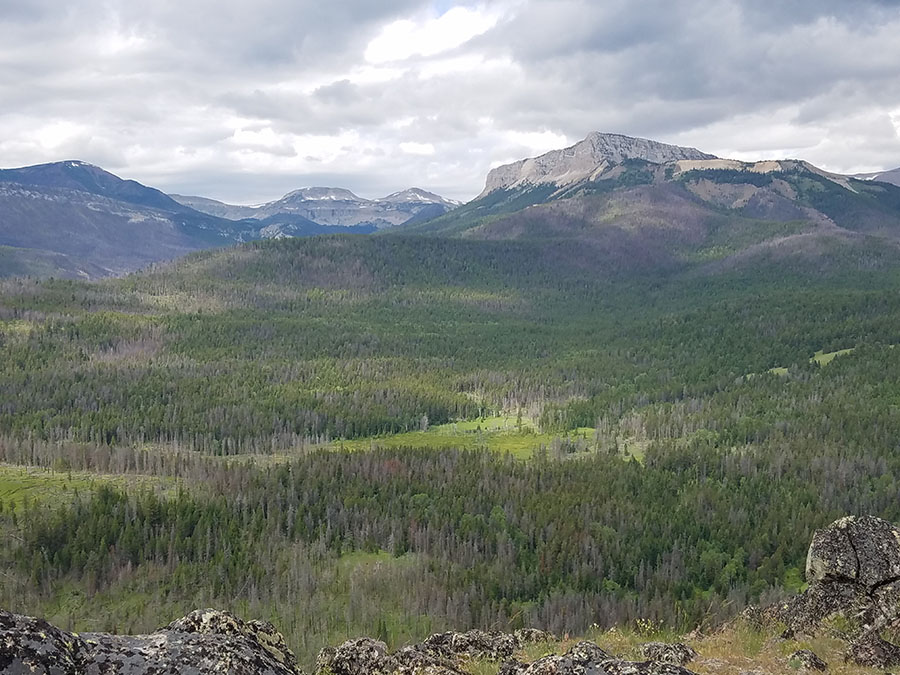In 2017, the Dimensions of Resilience workshop was held at the beginning of the Joint Fire Science Project-funded research: What makes for a resilient landscape? Climate, fire and forests in the Northern Rockies project. The first workshop identified pressing questions from the management community about resilience, climate, and fire; and identified characteristics (such as vegetation patterns, wildlife habitat, recreational opportunities, timber, carbon storage, and protection of communities from fire) of interest to be modeled.
As a follow up to the first workshop, the Northern Rockies Fire Science Network partnered with the University of Wisconsin for the Learning about Resilient Futures workshop in February, 2020. At this 2020 workshop, the research team shared simulation results at stand, landscape, and regional scales through the end of the 21st century. The research team and managers jointly interpreted what these projections mean for resilience; identified tradeoffs among different dimensions of resilience; determined what management interventions may resolve or inadvertently intensify tradeoffs; and reviewed limitations and appropriate use of modeling results. The group compared expectations from Workshop #1 to model results and identified potential avenues for promoting landscape resilience. Participants were asked to evaluate the process and suggested additional outreach projects for communicating the results more widely.
The research team was led by Monica G. Turner (University of Wisconsin-Madison) and team members participating in the workshops included Kristin Braziunas, Tyler Hoecker, Zak Ratajczak, Adena Rissman, Rupert Seidl, Leroy Westerling, and Monica Turner.
NRFSN published a research brief summarizing work from this project. Related publications are shown below. Keep checking this webpage for updates, as new publications will be displayed here as they become available.
Related Documents from the Research and Publications Database
Event Details
Feb 18 2020, 12am - Feb 21 2020, 12am
